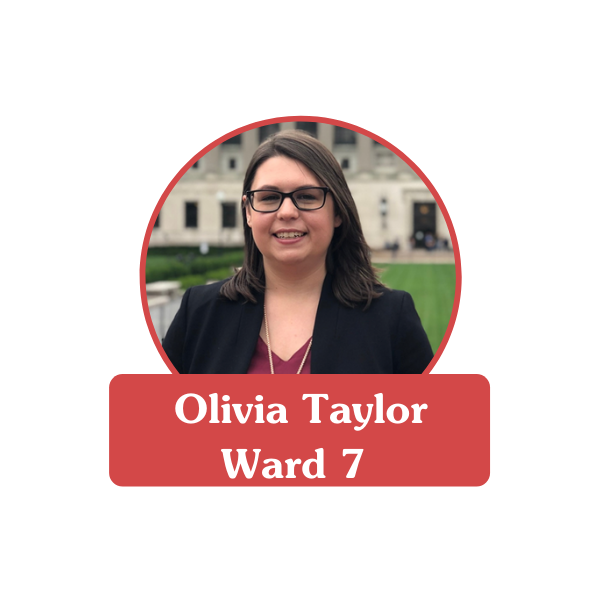
War is A Racket: Defund and De-Escalate
Considered on its own, the New York Police Department is in the top ten largest armies in the world. Why? As working-class New Yorkers struggle to stay fed and safely housed, the NYPD enjoys nearly unlimited resources and sees no issue with using those resources to oppress and surveil the city’s population. On tonight's show, we speak to Khalil from NYC-DSA’s Defund NYPD campaign on why socialists’ commitment to REAL public safety remains strong. We also take calls live from the WBAI audience.
In international news, capitalists and war-mongers are pushing for further escalation in the Russia-Ukraine dispute. We’ll hear from Gerard of the Democratic Socialists International Committee on their recent statement opposing US militarization and interventionism in Ukraine and Eastern Europe and calling for an end to NATO expansionism.
Join NYC-DSA's campaign to Defund NYPD: https://www.defundnypd.com/get-involved
Read the International Committee's statement in English, Russian, or Ukrainian: https://international.dsausa.org/statements/no-war-with-russia/
On this episode, Lee Ziesche shares a brief public service announcement about this month's sky-high ConEd bills. We will be covering this issue more in depth on future episodes, but visit bit.ly/conedbill to learn more about how this situation was created by New York politicians' climate inaction and how DSA is fighting back.


Vermont AFL-CIO endorses Vermont Progressive Party city council candidates
“The Burlington Progressive Slate has actively supported labor issues in Burlington. From passing the Responsible Contractor legislation to helping AFSCME Local 1343 fight layoffs, wage cuts, and an abusive Airport Director. They have been in the fight with us to build working-class power in Burlington and in the state of Vermont. On behalf of our over 11,000 members, the Vermont State Labor Council AFL- CIO Executive Board endorses Burlington's Progressive Slate of candidates.” - Dwight Brown, the Vice Chair of the Vermont AFL-CIO and a leader in the Burlington school employees union
List of Endorsed Candidates:
View fullsize
View fullsize

View fullsize

View fullsize

View fullsize

Register to vote HERE
Find your polling place here


Next DSA Book club read: Hate Inc.
As recent polls show that Americans have a higher distrust of media than ever before and factionalized varieties of social media have increasingly polarized people, nearly everyone has strong opinions about the media. If you’re interested in exploring and discussing this topic, the Coulee DSA Book Club is beginning Matt Taibbi’s recent book, “Hate Inc.: Why Today’s Media Makes Us Despise One Another,” an acclaimed analysis of how today’s mainstream media lies to people and divides them by manipulating us as news consumers.
The book club meets Thursday nights at 7 pm and will begin discussing Hate Inc. on Thursday, February 10th. Email us at CouleeDSA@gmail.com to receive a link to the book club to join in.”

The post Next DSA Book club read: Hate Inc. first appeared on Coulee DSA.

The Future is a Public Good with Sarahana
Yesterday two very different visions for the future of New York’s energy system were presented at a marathon 12+ hour long budget hearing on environmental conservation. On one hand, New York’s regulators argued to stay the course and continue to let the market and capital be the primary drivers of building renewable energy, despite the state having missed it’s renewable energy goals year after year and currently only 6% of New York’s energy comes from wind and solar. Community advocates and DSA-electeds had a different view - one where the future is a public good- and renewables are being built at the scale the climate crisis demands and are publicly-owned.
Tonight we’ll continue our series of interviews with NYC-DSA’s 2022 slate and are joined live by Sarahana Shrestha a candidate for Assembly District 103 in the Mid-Hudson Valley and member of the NY Public Power Coalition who is running under the slogan - the future is a public good.
More info about Sarahana: www.sarahanaforassembly.com
More info about Public Power: www.publicpowerny.org


Statement on Events at the Capitol
Jan 6, 2021
This January 6th, as congress proceeded with the count of the electoral college votes, a mob of armed white supremacists, neo-nazis, the alt-right and QAnon conspiracy theorists, stormed the U.S. capitol intending to forcibly stop the counting of the votes.
While acknowledging the deeply undemocratic nature of the electoral college and the nation’s electoral system as a whole, the Ithaca chapter of the Democratic Socialists of America condemns in the strongest terms the attempt of the far right to stop the process that would ensure the end of Donald Trump’s tenure in office. No election was stolen, no fraud committed.
But this is not the main lesson we should be focusing on. As socialists, what is important to recognize is not so much the assault on procedure of a broken political system that can only offer duopoly so much as it is important to recognize the alarming ascendency and growth of white supremacist / nationalist violence in America.
It is critical to understand the complicity of law enforcement and public officials in this dangerous development whether it is the Republican Party, the two recently elected representatives who publicly support QAnon, or centrist Democrats who offer only an inadequate and lackluster response. The incompetency, unpreparedness and delay seen last night on the part of law enforcement or security is certainly curious to say the least. We have seen in videos of the police or security forces giving a half-hearted defense before letting a mob of white supremacists into the capitol, being vastly outnumbered, and at times taking photos with some individuals. This is not without precedent either. The ideological sympathy of law enforcement and right wing insurrectionists is now more abundantly clear than ever before.
Many have noted that last night's events are an example of white privilege. This is true, but it may be more accurately described as a display of white power in American society. Figures and members from the fascist Proud Boys, European Heritage Association, Nationalist Social Club, Matthew Heimbach of the now defunct Traditionalist Workers Party, men with white supremacist tattoos dressed in garb glorifying “camp auschwitz”, and so on, were let into the capitol building with little to no resistance.
Compare the response of law enforcement last night with the response given to anti-racist protesters that we saw this past summer which was met with disproportionate, swift and brutal force. Make no mistake, if this were Black Lives Matter or any anti-racist protest, the full force of the state would be used immediately. One only needs to recall the use of riot police, teargas, and beatings to clear Lafayette Square in Washington D.C., the illegal abduction and questioning of activists by unidentified federal agents, or any of the other police violence that happens everyday.
The rise of this sort of white-supremacist violence did not happen in a vacuum and neither did it start with Trump. Rather, the phenomenon of Trumpism revealed and gave confidence to those tendencies that were always there in American society and they will certainly not disappear with the end of the Trump presidency. The events that took place on January 6th are a clear indication that an organized left and working class is needed that can defend against any instances of authoritarianism and bring a more humane future in a deeply fragmented society. This includes workplace organizing and growing a militant labor rank-and-file, mutual aid for the most vulnerable, protecting one another from evictions and homelessness, preventing the worst of the climate crisis, and what is perhaps most immediately needed: taking a principled stand against white supremacy, racism, and fascism.
Ithaca DSA Steering Committee

Abortions and Coffee
Starting late last year in Buffalo, NY, a union wave has spread all over the country as workers at an ever-increasing number of Starbucks coffee shops are getting organized and making demands on their boss and on the multi-national corporation that employs them. This movement is gaining speed every day - and to help us understand what’s going on from a worker perspective, we’re joined live in the studio by James, a worker-organizer with Starbucks Workers United in Buffalo.
Another national movement is mobilizing to defend access to abortion as the right-wing assault on this fundamental right continues to escalate. With landmark legislation Roe V. Wade on the verge of being rolled back, socialists are continuing to organize for grassroots solutions to this national crisis that center anti-racism, abolition, and a no-holds-barred approach to guaranteeing access to safe abortion. We’ll hear from Ali of Chicago DSA and Chicago for Abortion on this crucial struggle.
On this show, Jack makes a brief announcement about the New Deal for CUNY. Learn more and get involved at bit.ly/action-nd4c.
Find a local abortion fund to support if you can: https://abortionfunds.org/funds/
Follow along with James and the Starbucks partners at @SBWorkersUnited. Current Starbucks partners can email sbworkersunited@gmail.com to get connected to an organizer.
This episode is dedicated to the memory of our NYC-DSA comrade, Alex Z.

The Bronx Is Still Burning: Tenants Fighting Back
Tonight on our show we will be talking about our host Desiree Joy Frias' home of the South Bronx where capitalist interests and government failures are continuing to cost lives.
In the middle of brutal winter weather and yet another Covid spike, tenants are once again mobilizing to defend against evictions and build working-class power with all of New York City’s residents, including the 1 in 12 New Yorkers who live in public or section 8 housing. Last week’s tragic and preventable Twin Parks fire on 181st street in the Bronx and yesterday’s Con Edison explosion on Fox Street less than two miles away are just the latest examples of the ongoing violence of landlord neglect and failures by the federal and local government to provide adequate public housing and public infrastructure. Con Edison is responsible for yesterday’s explosion that killed one, injured seven and leveled an entire row home in the South Bronx. This exploitative monopoly spends millions in lobbying fees to fight green projects and remain the sole provider of power to over 12 million customers.
To discuss these preventable tragedy and how socialists are organizing for tenant power, we're live in the studio with RPM comrade and fellow Bronx/Upper Manhattan DSA member Bernard Goyder and an organizer from NYC-DSA’s Brooklyn Housing Working Group, Isaac. Tonight you’ll learn about NYC-DSA’s Right to Remain campaign to pass Good Cause Eviction, transformative legislation that will protect millions of tenants just like us. Keeping with the uptown theme, we’ll also hear an update on the successful strike by the Student Workers of Columbia.
Get organized, get involved, help your neighbor, call your legislator: https://linktr.ee/nycdsa_housing
Read more on South Bronx Mutual Aid and others' efforts to support tenants in the Bronx: https://twitter.com/booksandrose/status/1483854067457826822?s=20


CPS Energy Rate Hike
Last week, against the backdrop of the most dangerous period of the COVID-19 pandemic, City Council voted to increase our CPS Energy rates. During a period that has found teachers, students, service workers, and the highest rate of city employees out on COVID leave, we are being urged to stay home, to stop the spread, but no further federal assistance is coming. Instead, residents of San Antonio are being forced to bear the brunt of CPS Energy’s mismanagement.
We commend our DSA endorsed City Councilmembers, Jalen Mckee-Rodriguez and Teri Castillo, for voting against the rate hike. Other Council Members gave lip service to the idea of reforming CPS Energy, without using their power to force any committed change. The Council discussion made clear who is listened to: it’s the CEOs and business executives who run a utility which we, the people, own. Who knows if Rudy Garza will be here to see any of these commitments through? Former CEO Paula Gold Williams certainly isn't, but we, the working class ratepayers of San Antonio will be here.
Since the fallout of Winter Storm Uri, it was clearly only a matter of time before the cost of the storm would be pushed onto working class people. On the first CPS Energy Board of Trustees call following the storm, over 140 people delivered public comments identifying the failures of CPS Energy. At nearly every single CPS Rate Adjustment Town Hall, the choice of the people was overwhelmingly clear, no rate hike. Instead, a majority of City Council voted against the will of the people. We are repeatedly told that our public input is valued, and like clockwork, our representatives vote against our interests. It’s made obvious again that the majority of our City Council is unwilling to govern with the tenacity our living conditions call for.
This is why the only action the people of San Antonio have left is direct democracy. Last year, Recall CPS nearly collected enough signatures to put CPS Energy reform on the ballot. Next year, it appears we have no other choice. If our elected officials refuse to represent the will of their constituencies, we need a ballot measure that allows the voters of San Antonio to choose the best way forward for CPS Energy. We hope you will join us in that fight. DSAUSA.org/join


Tell Denver City Council – No Dirty Backdoor Deal with Xcel Energy
Xcel Energy originally hoped to run their highest polluting electric plant, the Comanche Coal Plant, until 2040. Then hundreds of people wrote in and spoke out at public hearings demanding that they close the plant as soon as possible – 2030 at the latest.
In response, Xcel struck a backdoor deal with the City of Denver to keep running the coal plant until 2035, along with some nasty strings attached.
Luckily the Public Utility Commission is likely to amend or even reject this proposed settlement. We’re co-organizing a rally on Friday April 8th and a phone/email campaign telling Denver City Council to refuse any future agreement with Xcel and instead demand the Comanche 3 Coal Plant close by 2030 or sooner.
Attend the Coal Free Colorado Rally on Friday April 8th
Call or email your city council representative and tell them No Dirty Backdoor Deal for Xcel.
Denver is Turning its Back on its Climate Commitments by Signing the Xcel Settlement
Denver’s electricity provider, Xcel Energy, is trying to lock Colorado into 13 more years of coal while forcing customers to foot the bill… And the City of Denver supported it!
Here’s what’s wrong with the proposed settlement:
-
It agrees that Comanche 3, the largest single source of climate pollution in Colorado, should operate until 2035.
The settlement would require the Comanche 3 coal plant to burn coal until 2035– five years longer than any other coal plant in Colorado. This is the most unreliable power plant in the state, including being offline for nearly all of 2020 because of poor maintenance practices.
The coal plant is the largest source of climate pollution in the state and is located in Pueblo, a low-income, Latino community. This community doesn’t even get the electricity from the plant — just the pollution. When the PUC held a hearing in Pueblo in October 2021, residents expressed overwhelming support for retiring the coal plant by 2030 at the latest.
-
It prevents Comanche 3 from ever being closed earlier than 2035.
The settlement would lock in a retirement date for Comanche 3 of December 31, 2034 that could never be changed, even as the plant continues to suffer malfunctions and more and more cheaper, cleaner alternatives become available. The single largest source of CO2 emissions will run for the next 14 years.
-
It makes Xcel’s shareholders rich on the backs of Denver ratepayers.
The settlement forces us ratepayers to pay Xcel $658 million to recover costs lost because of their mismanagement. We shouldn’t be on the hook to pay millions to Xcel’s Wall Street investment for their bad business decisions.
The settlement also guarantees Xcel at least $626 million in new company-owned electric generation resources to replace the Comanche 3 coal plant after 2035. The more resources Xcel builds and owns, such as new wind turbines, solar panels, or gas plants, the more money their shareholders make. Typically, Xcel has to allow other companies to bid on new electric projects. For example, instead of setting up community-owned solar farms we would have to get our new electricity through Xcel, feeding their extractive monopoly.
-
It assumes new gas plants would operate for at least 40 years.
The settlement allows Xcel to assume that new gas plants would operate for 40 years – long after 2050, the date by which Xcel says it is aiming to be carbon-free. This violates Denver’s plan for 100 percent renewable energy by 2030, and Colorado’s goal of 100% renewable energy by 2040.
-
It will massively increase pollution from gas-fired power plants.
The settlement says that the social cost of carbon will be used in dispatch starting in the summer of 2022. This means that gas generation will increase dramatically, to make up for the lost coal generation–because it is impossible for Xcel to acquire new renewables by next summer.
Tell your City Council member and the Mayor that the City of Denver to protect people and the climate, rather than corporate profits!


Over One Hundred Colorado Residents Attend Public Hearing on Xcel’s Electric Resource Plan Demanding a Just Climate Transition
On Dec. 2, more than 100 people registered for a Zoom call hosted by the Public Utility Commission to hear what the public thought of Xcel’s 10-year plan. Scheduled to end at 6 p.m., the event ran well past 7.
Of the dozens and dozens who spoke, only four supported Xcel’s plan. The rest of us called it out for what it is: greenwashing.

Xcel boasts that their “Landmark electric resource plan would cut carbon emissions an estimated 85% by 2030.”
The problem with that target is that it’s too late. The Biden administration’s national goal is 100% carbon-free electricity by 2035; Gov. Polis’ target is 100% renewable energy by 2040. Denver, Boulder, Pueblo, Fort Collins, Longmont, Golden, Summit County, Lafayette, Frisco, Aspen, Glenwood Springs, Nederland, and Breckenridge each have set 100% renewable electricity targets by 2030 or 2035.
We’re already in the midst of a climate crisis. We’re feeling it first-hand with the record-setting heat waves, wildfires, mudslides, droughts and air pollution.
Xcel missed its window of opportunity to help avert climate catastrophe. Now the question is, how bad will we allow it to get?
To stave off the worst of the worst, community members overwhelmingly called for the following changes to Xcel’s plan:
Close all coal plants, especially the Comanche Coal Plant, the state’s dirtiest, most unreliable and expensive source of energy, by 2030 at the latest.
Do not pass on the cost of the Comanche Coal Plant to ratepayers. This coal plant was built in 2010 and it was largely opposed then. It was a bad investment that Xcel Energy needs to take responsibility for. The general public already is paying the price with our health and the challenges of an increasingly hostile climate.
Close the Arapahoe and Cherokee gas plants by 2030. Like the Comanche Coal plant, these have been polluting the air of its nearby mostly Latino, working-class neighborhoods, contributing to our severe ozone issue and of course climate change.
Set a 100% renewable electricity goal by 2040 at the very latest — to align with Colorado targets.
The outpouring of support for these demands has been overwhelming. The hearing on Dec. 2 featured voices ranging from ski industry representatives concerned about shrinking ski days, to local business owners wanting to purchase clean electricity, to indigenous leaders highlighting the devastation coal and gas brings to the land and their communities, to parents angry about the planet on which we’re raising, and eventually will pass along to, our kids.
A strong majority of Pueblo residents (30 opposing Xcel’s plan, 7 neutral and 8 in favor) spoke out at an earlier public hearing in October. More than 1,000 residents have submitted written comments to the same effect.
Xcel Tries Striking a Backdoor “Settlement”
This surge in public participation prompted Xcel to have work behind closed doors with the city of Boulder and Denver and other parties to devise a counter-offer.
Originally the plan was to run the Comanche Coal plant until 2040. In this new deal, that closure date would be moved up to 2035. It would also pass on some of the cost of the bad investment to us ratepayers.
At the Dec. 2 statewide hearing, however, we residents made clear that 2030 is the hard line for closing those coal- and gas-fired plants. We can’t have Xcel making closed-door deals that undermine the strong public consensus on this.
This post was taken largely from EcoSocialist Chair Clayton Dewey’s op-ed in the Colorado Sun, with his permission.